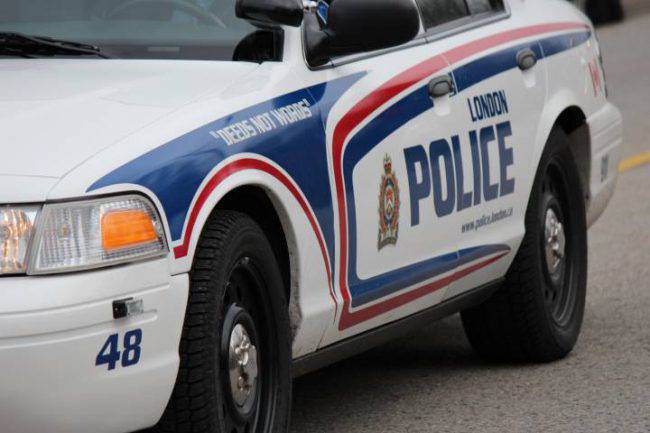A provincial crackdown on police street checks has made the practice practically non-existent in London.

Compared to 8,400 street checks in 2014, city police only conducted such practices six times in 2017.
The significant drop is a result of the province implementing stricter regulations at the beginning of last year.
Officers can no longer ask people for identifying information arbitrarily, because they decline to speak to police or because they happen to be in a high-crime area.
Now, police have to let a person know why they’re being stopped, tell them they don’t have to provide information and officers must give them a receipt with their name and badge number. That way citizens can report the officer if they had any concerns about the interaction.
Of the six street checks, four did not comply with the new regulations.
“The officer did not notify the individual that they did not have to identify themselves, and further, in each occasion the individual was not supplied with a receipt, both of which are required under the legislation,” said deputy police chief Daryl Longworth, who says they are using the new requirements as a learning tool for officers.
“No misconduct was identified on behalf of the officer, they were spoken to and educated on the requirements of the legislation.”
- Posters promoting ‘Steal From Loblaws Day’ are circulating. How did we get here?
- Canadian food banks are on the brink: ‘This is not a sustainable situation’
- Video shows Ontario police sharing Trudeau’s location with protester, investigation launched
- Solar eclipse eye damage: More than 160 cases reported in Ontario, Quebec
Police Chief John Pare credits front-line officers, who are changing the ways they interact with the community to help improve the relationship between police and the community.
“We made a decision that we wanted to strive to do better, a lot of the credit goes to the front-line members, that didn’t use this as an impediment to interacting with the community, but chose to do things differently,” said Pare, speaking at the London Police Services Board meeting Thursday evening.
“Find that balance between interacting with the community, balancing the civil liberties of individuals and ensuring community safety.”
Coun. Mo Salih, an outspoken carding critic who now chairs the police board, raised concerns about how officers are trained and how the regulations were implemented by the province.
The province rolled out new regulations at the beginning of last year following pressure from critics who argued the practice was unconstitutional and unfairly targeted minorities.
“This legislation is complex, it is new, and I’m sure there is some uncertainty on the part of our officers,” said Longworth.
“We are working as an organization to better train and equip our officers, with an understanding of not only this legislation but how to be more aware and understanding of our diverse populations.”
During their six street checks in 2017, city police collected information from 10 people.
Of those, seven people were white, one was black, one Hispanic and one Middle Eastern. Six of the individuals were teenagers, three were in there 20s, and one was in their 30s.








Comments